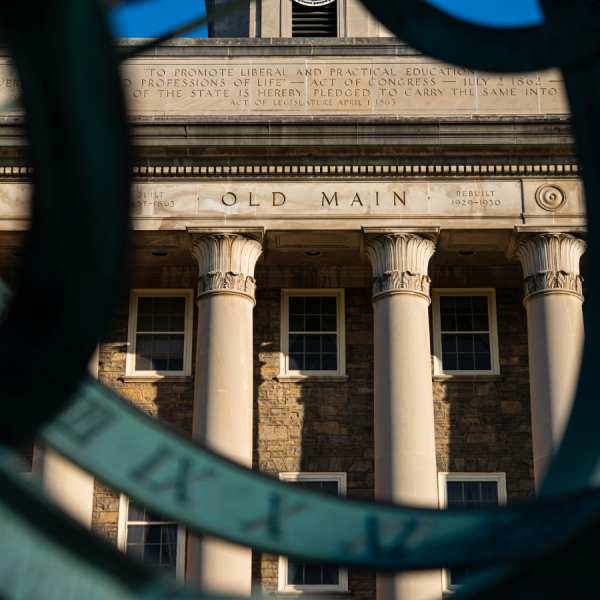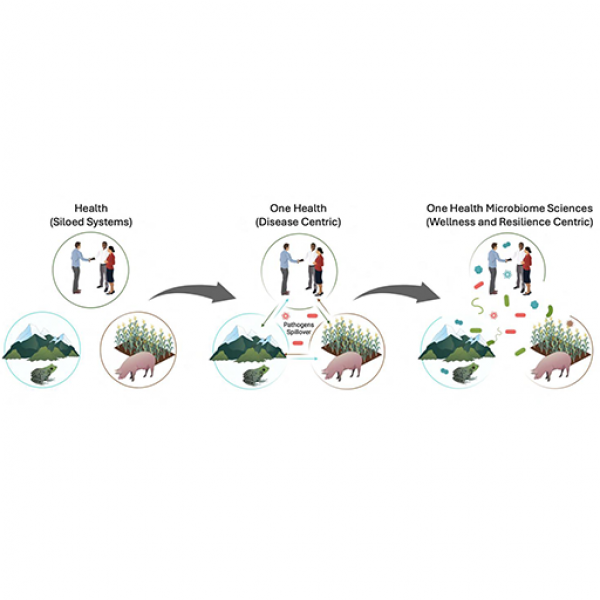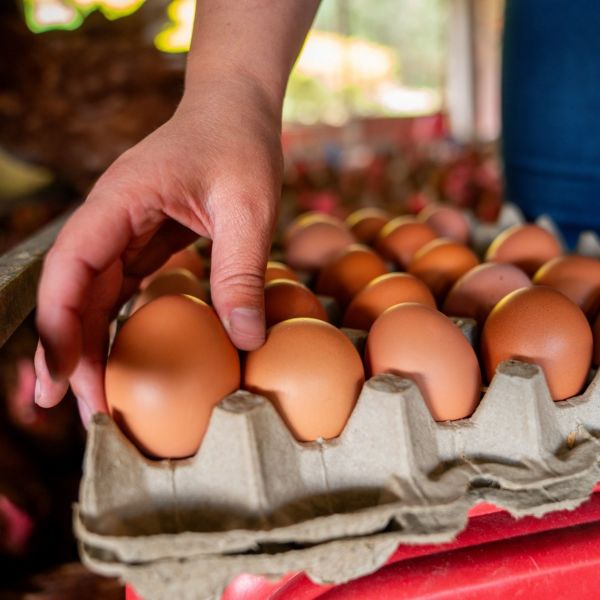News

Jun 25, 2025
Nutritional sciences faculty receive national recognition for research
Three Penn State Department of Nutritional Sciences faculty members were recently recognized for their research contributions to the field with prestigious awards by the American Society for Nutrition (ASN).
Full Article

Jun 11, 2025
Q&A: Unifying the microbiome sciences for global health and sustainability
Recently, members of Penn State's One Health Microbiome Center published an article in the American Society for Microbiology’s flagship journal, mBio. In this Q&A, a few of the paper’s authors discussed how the center is leading the charge to breakdown traditional disciplinary silos and expand the One Health focus to include more than just pathogenic microbial threats.
Full Article

Jun 09, 2025
Two Penn State doctoral students selected for industry internship in Germany
The One Health Microbiome Center (OHMC) in the Huck Institutes of the Life Sciences at Penn State is sending two doctoral students to Hilden, Germany, for a seven-week industry internship at the headquarters of QIAGEN, a global leader in biotechnology for life sciences diagnostics, equipment and research.
Full Article

Jun 04, 2025
$2.9M grant funds study on long-term effects adolescent binge drinking
An interdisciplinary team of researchers at Penn State will use a new five-year, $2,900,000 grant to investigate the long-term effects of excess alcohol drinking during adolescence.
Full Article

Jun 03, 2025
Penn State’s Youth Food Lab attends UN Science, Technology, Innovation forum
Penn State’s College of Agricultural Sciences was represented on the global stage as faculty and students participated in the United Nations’ 10th Multi-stakeholder Forum on Science, Technology and Innovation for the Sustainable Development Goals, held at U.N. headquarters in New York City earlier this month.
Full Article

May 27, 2025
New online tool predicts risk of energy deficiency in young, exercising women
Energy deficiency is a common problem among physically active women and can result in bone and reproductive health problems.
Full Article

May 07, 2025
Common diabetes drug helps chickens lay more eggs
Metformin, a drug commonly prescribed to humans, could be a game-changer for farms and food production, researchers said.
Full Article

Apr 30, 2025
Energy deficiency impacts collegiate running performance
New study from researchers in the Penn State Department of Kinesiology is first to measure how preseason energy levels can predict athlete performance.
Full Article

Mar 17, 2025
Ag Sciences research institute SAFES funds projects addressing critical issues
Penn State’s College of Agricultural Sciences, through its Institute for Sustainable Agricultural, Food and Environmental Science, known as SAFES, announced funding awards to accelerate the advancement of its Critical Issues Initiatives. These initiatives serve as the college’s impact hubs, addressing urgent and high-impact challenges through targeted efforts and innovative projects.
Full Article

Mar 17, 2025
Virtual lecture to explore the importance of maintaining healthy ecosystems
On March 25, Erika Ganda, an assistant professor in Penn State’s Department of Animal Science, will discuss via Zoom how microbes in animals, people and the environment are interconnected through a concept known as “One Health.” The lecture is part of the Penn State Alumni Association's Virtual Speaker Series.
Full Article